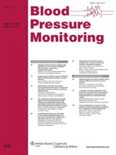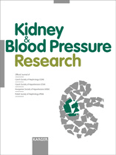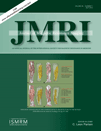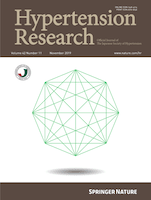
BLOOD PRESSURE MONITORING
Scope & Guideline
Advancing cardiovascular health through precise measurement.
Introduction
Aims and Scopes
- Blood Pressure Measurement Techniques:
The journal focuses on the validation and accuracy of various blood pressure measurement devices and methodologies, including automated oscillometric devices, ambulatory blood pressure monitoring, and home monitoring systems. - Hypertension Management and Treatment Strategies:
Research published in this journal often explores different treatment protocols for hypertension, including pharmacological interventions, lifestyle modifications, and exercise regimens. - Epidemiological Studies:
The journal features studies that examine the prevalence and risk factors associated with hypertension across different demographics, including children, adults, and specific patient populations such as those with chronic diseases. - Technological Innovations in Hypertension Monitoring:
There is a consistent focus on the integration of new technologies, such as wearable devices and mobile applications, in the monitoring and management of blood pressure. - Cardiovascular Risk Assessment:
Many articles assess the relationship between blood pressure patterns (e.g., dipping vs. non-dipping) and cardiovascular outcomes, such as stroke and heart disease. - Genetic and Biomarker Studies:
The journal publishes research linking genetic factors and biomarkers, such as uric acid and C-reactive protein, to hypertension and its complications.
Trending and Emerging
- Integration of Artificial Intelligence and Machine Learning:
Recent studies are increasingly exploring the application of AI and machine learning algorithms in predicting blood pressure changes and enhancing monitoring accuracy, demonstrating the intersection of technology and healthcare. - Telemedicine and Remote Monitoring:
There is a growing trend towards research on telehealth solutions and remote blood pressure monitoring, particularly in the context of increasing demand for home healthcare solutions. - Impact of Comorbidities on Hypertension Management:
Emerging research is focusing on how comorbid conditions, such as diabetes and cardiovascular diseases, influence blood pressure management strategies and outcomes. - Longitudinal Studies on Blood Pressure Variability:
There is a notable uptick in studies examining blood pressure variability over time and its implications for cardiovascular health, highlighting the need for dynamic management strategies. - Role of Inflammation and Biomarkers:
Research exploring the links between inflammatory markers and hypertension is gaining prominence, indicating a broader understanding of the pathophysiology of hypertension. - Patient-Centric Approaches in Hypertension Management:
Increasing emphasis is being placed on understanding patient behaviors, preferences, and adherence to treatment regimens, which is critical for improving hypertension outcomes.
Declining or Waning
- Traditional Lifestyle Interventions:
While lifestyle interventions like dietary changes and physical activity continue to be relevant, there is a noticeable decline in studies focused solely on these aspects, possibly due to a growing emphasis on technological solutions. - Single-Factor Risk Assessments:
Research focusing on isolated factors affecting blood pressure, such as single dietary components or singular lifestyle habits, is becoming less common as more comprehensive, multifactorial approaches gain traction. - Basic Blood Pressure Monitoring in Stable Populations:
Studies that primarily focus on monitoring blood pressure in stable populations without additional risk factors or conditions are becoming less prevalent, with more research directed towards complex patient profiles or high-risk groups.
Similar Journals

KIDNEY & BLOOD PRESSURE RESEARCH
Elevating the Standards of Nephrology and Cardiology Research.Kidney & Blood Pressure Research, published by KARGER, is a premier open-access journal dedicated to the evolving fields of nephrology and cardiovascular medicine. Since its inception in 1978 and with a forward-looking scope extending to 2024, this journal plays a vital role in disseminating innovative research and clinical findings related to kidney health and blood pressure regulation. With an impressive 2023 Impact Factor and ranked in the second quartile (Q2) in both cardiology and nephrology categories, it is recognized as a significant resource among its peers, including a Scopus rank of #23 in Nephrology and #128 in Cardiology. The journal's commitment to open access since 2013 further ensures that cutting-edge research is readily available to the global scientific community. Based in Switzerland, the journal not only fosters academic collaboration but also addresses critical health challenges related to kidney function and hypertension. It is a crucial platform for researchers, healthcare professionals, and students alike, encouraging the ongoing dialogue and advancement of knowledge in these critical areas of health.

JOURNAL OF HUMAN HYPERTENSION
Innovating insights into hypertension for healthcare professionals.JOURNAL OF HUMAN HYPERTENSION, a prominent publication in the field of internal medicine, is dedicated to advancing the understanding of hypertension and its implications for human health. Published by SPRINGERNATURE in the United Kingdom, this esteemed journal has been a vital resource for researchers and clinicians since its inception in 1987, with a continuous commitment to disseminating high-quality, peer-reviewed research. With an impressive Q2 category rank in Internal Medicine and a Scopus rank of 53 out of 167, it occupies a crucial position within the academic community, reaching a 68th percentile ranking that underscores its significance. The journal aims to provide a platform for innovative studies and reviews, fostering knowledge that bridges basic science, clinical practice, and public health. Although it does not currently offer open access, it remains accessible through institutional subscriptions, ensuring that vital information about hypertension is available to a broad spectrum of healthcare professionals and researchers. Explore the critical findings and groundbreaking research published in the JOURNAL OF HUMAN HYPERTENSION to stay at the forefront of hypertension studies.

Integrated Blood Pressure Control
Transforming Research into Practice in Blood Pressure CareIntegrated Blood Pressure Control is a distinguished Open Access journal published by DOVE MEDICAL PRESS LTD in New Zealand, dedicated to advancing the field of cardiology and cardiovascular medicine as well as internal medicine. With its established timeline from 2009 to 2024, this journal has earned a commendable Q2 ranking in both its categories for 2023, reflecting its significant contribution to clinical research and practice. With an ISSN of 1178-7104, it provides a platform for high-quality, peer-reviewed articles that address the complexities of blood pressure management, aiming to improve patient outcomes and foster discussions among healthcare professionals. The journal's open-access model, implemented since 2008, ensures that research findings are readily available to all, promoting greater accessibility and dissemination of knowledge in this critical area of health. Researchers, professionals, and students alike are encouraged to engage with the latest findings and innovative practices published within this journal, which plays an essential role in shaping the future of blood pressure control and related medical fields.

HYPERTENSION
Shaping the future of hypertension management.HYPERTENSION, published by Lippincott Williams & Wilkins, is a preeminent journal in the field of cardiovascular medicine, focusing on the latest research, therapies, and clinical practices related to hypertension and its associated disorders. With a distinguished Q1 ranking in Internal Medicine and a commendable Scopus rank of #12 out of 167 in its category, it occupies a vital position within the academic community, appealing to researchers, clinicians, and educators alike. The journal has been disseminating impactful findings since 1979 and continues to influence the discourse on hypertension through rigorous peer-reviewed articles, reviews, and studies designed to elevate understanding and treatment of this prevalent condition. HYPERTENSION remains an essential resource for professionals keen on advancing their knowledge in this critical area of medicine, fostering innovations that ultimately improve patient care.

JOURNAL OF MAGNETIC RESONANCE IMAGING
Unveiling Insights in the World of Magnetic Resonance Imaging.JOURNAL OF MAGNETIC RESONANCE IMAGING (ISSN: 1053-1807; E-ISSN: 1522-2586), published by WILEY, stands as a leading academic platform in the field of Radiology, Nuclear Medicine, and Imaging. With an impressive impact factor that reflects its Q1 ranking in the respective category and a notable Scopus rank of 30 out of 333 journals, this journal serves as a critical resource for cutting-edge research and innovative practices in magnetic resonance imaging. Since its inception in 1991, it has provided a repository of high-quality research, reviews, and clinical applications aimed at enhancing the understanding and technological advancements within the imaging community. Although it does not offer Open Access, the journal's comprehensive approach ensures that professionals, researchers, and students alike can gain crucial insights and contribute significantly to the evolving landscape of medical imaging. With a commitment to excellence and relevance, the journal continues to push the boundaries of knowledge and practice in its field.

Neurosonology and Cerebral Hemodynamics
Transforming Understanding of Cerebral HemodynamicsNeurosonology and Cerebral Hemodynamics is a notable academic journal published by the Bulgarian Society of Neurosonology & Cerebral Hemodynamics, dedicated to advancing the field of neurosonology and exploring the dynamics of cerebral blood flow. With an ISSN of 1312-6431, this journal serves as a vital platform for researchers, clinicians, and students interested in the latest methodologies and clinical applications related to ultrasound techniques in neurovascular studies. While the journal does not currently have open access options, it remains a respected source for peer-reviewed articles that contribute to both theoretical insights and practical advancements in neurosonology. The journal aims to disseminate cutting-edge research and foster collaboration among professionals in neurology, radiology, and vascular biology, thereby enhancing the understanding of cerebral hemodynamics in health and disease. As the field continues to evolve, Neurosonology and Cerebral Hemodynamics plays a critical role in shaping future research and clinical practices.

Journal fur Hypertonie
Pioneering insights into the complexities of hypertension.Journal fur Hypertonie is a leading academic journal published by KRAUSE & PACHERNEGG GMBH, dedicated to the critical field of hypertension research. Since its inception in 1998, the journal has served as a vital platform for disseminating pioneering studies and advancements in the diagnosis, treatment, and management of hypertension. Although its Scopus coverage was discontinued in 2016, the journal continues to hold significance within the academic community, evidenced by its ranking of #98 out of 124 in Internal Medicine, placing it in the 21st percentile. This reflects its targeted impact and relevance in the evolving landscape of cardiovascular research. With no Open Access options, the journal remains a specialized resource indispensable for researchers, healthcare professionals, and students focused on enhancing their understanding and clinical practices related to hypertension. The journal's address is MOZARTGASSE 10, GABLITZ 3003, AUSTRIA.

TRANSFUSION CLINIQUE ET BIOLOGIQUE
Advancing transfusion science for better patient outcomes.TRANSFUSION CLINIQUE ET BIOLOGIQUE, an esteemed journal published by Elsevier France - Éditions Scientifiques Médicales Elsevier, has been a pivotal resource in the fields of transfusion medicine, biochemistry, and hematology since its inception in 1994. With a strong commitment to advancing scientific knowledge, this journal provides a platform for high-quality research and clinical studies aimed at improving patient care and outcomes in transfusion practices. Although categorized in Q3 and Q4 quartiles across multiple categories in Biochemistry and Medicine for 2023, the journal holds significant potential for growth and impact within the scientific community. While it currently does not offer open access options, its indexing in reputable databases ensures visibility and reach among professionals and researchers. As the field evolves, TRANSFUSION CLINIQUE ET BIOLOGIQUE aims to continue fostering innovation and collaboration, making it a valuable tool for anyone involved in medical, biochemical, and hematological research.

HYPERTENSION RESEARCH
Exploring innovative strategies in hypertension management.HYPERTENSION RESEARCH, published by SpringerNature, serves as a premier platform in the field of Cardiology and Cardiovascular Medicine, Internal Medicine, and Physiology. Since its inception in 1992, the journal has built a substantial reputation, currently ranked in the second quartile (Q2) across several categories in 2023, reflecting its influence and high-quality contributions to medical research. With a focus on hypertension, the journal aims to disseminate vital research findings, clinical studies, and innovative treatment strategies to a diverse audience of researchers, healthcare professionals, and students, fostering knowledge exchange in the management of hypertensive conditions. Although it is not an Open Access journal, it offers comprehensive access to its extensive archive of valuable resources, ensuring that critical advancements in the understanding of hypertension are both accessible and impactful. HYPERTENSION RESEARCH is not only essential for those directly involved in cardiovascular and internal medicine practices but also for interdisciplinary scholars who are looking to explore the intersections of physiology and other biomedical fields in their work.

Clinical Hypertension
Unlocking the future of hypertension science.Clinical Hypertension is a premier journal dedicated to advancing the field of hypertension and cardiovascular health, published by SpringerNature. Since its transition to an Open Access model in 2014, the journal has opened doors for researchers globally to share their findings without barriers, aiming to foster collaboration and innovation in this vital area of medicine. With a current impact factor that positions it in the Q2 quartile for both Cardiology and Cardiovascular Medicine and Internal Medicine, Clinical Hypertension is recognized for its scholarly contributions, reflected in its Scopus rankings (Rank #100/387 in Cardiology and Rank #52/167 in Internal Medicine), which place it in the top percentiles of these competitive fields. Covering a diverse range of topics within hypertension research, it serves as an essential resource for clinicians, researchers, and students alike, promising to keep its audience informed of the latest developments and breakthroughs from its inception in 2017 through to 2024.